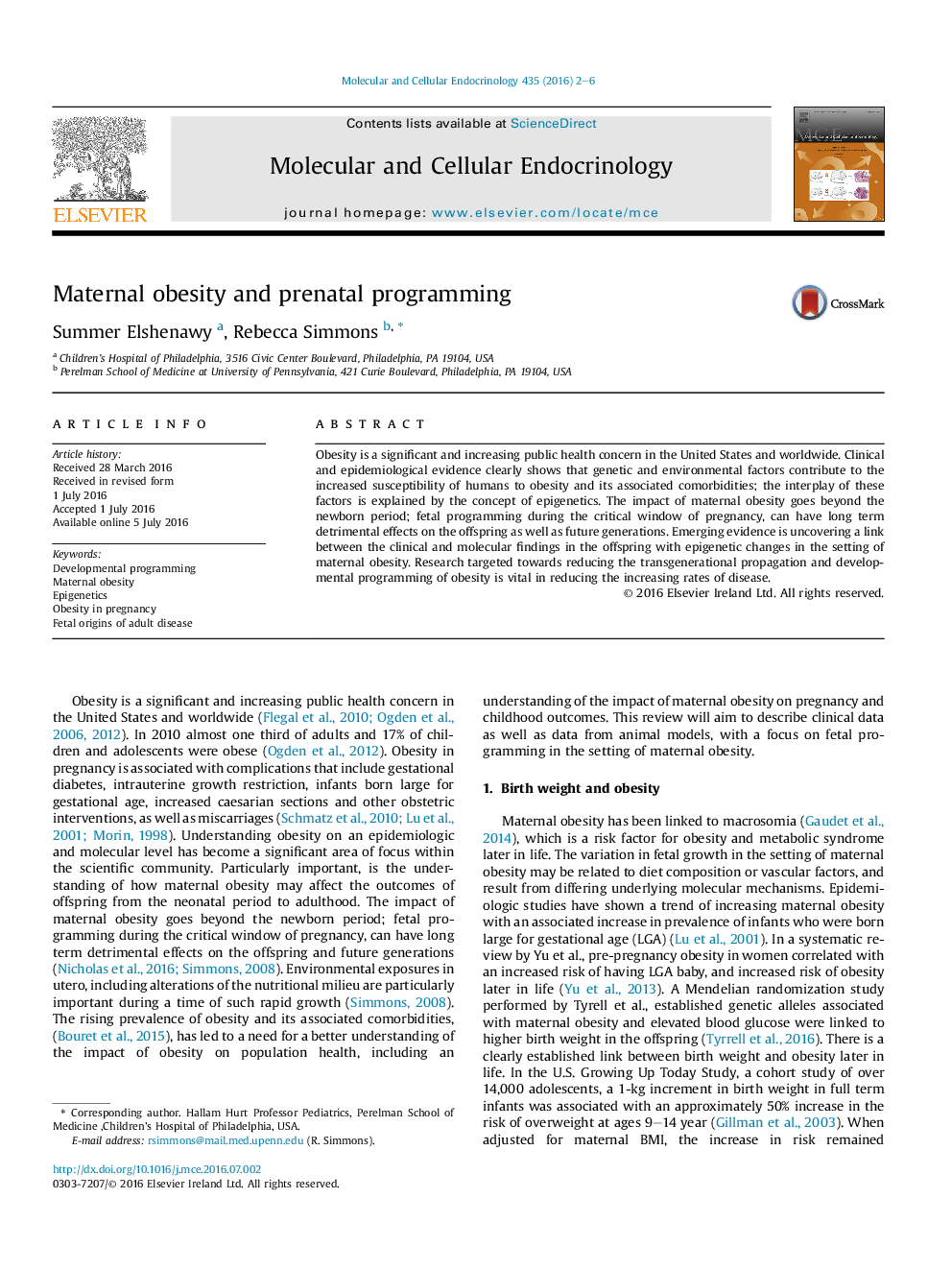| Article ID | Journal | Published Year | Pages | File Type |
|---|---|---|---|---|
| 2195478 | Molecular and Cellular Endocrinology | 2016 | 5 Pages |
•Genetic and environmental factors contribute to the development of obesity.•Maternal obesity is associated with epigenetic modifications in the offspring.•Fetal programming has long-term effects on offspring as well as future generations.•Research targeted towards reducing the developmental programming of obesity is vital.
Obesity is a significant and increasing public health concern in the United States and worldwide. Clinical and epidemiological evidence clearly shows that genetic and environmental factors contribute to the increased susceptibility of humans to obesity and its associated comorbidities; the interplay of these factors is explained by the concept of epigenetics. The impact of maternal obesity goes beyond the newborn period; fetal programming during the critical window of pregnancy, can have long term detrimental effects on the offspring as well as future generations. Emerging evidence is uncovering a link between the clinical and molecular findings in the offspring with epigenetic changes in the setting of maternal obesity. Research targeted towards reducing the transgenerational propagation and developmental programming of obesity is vital in reducing the increasing rates of disease.
